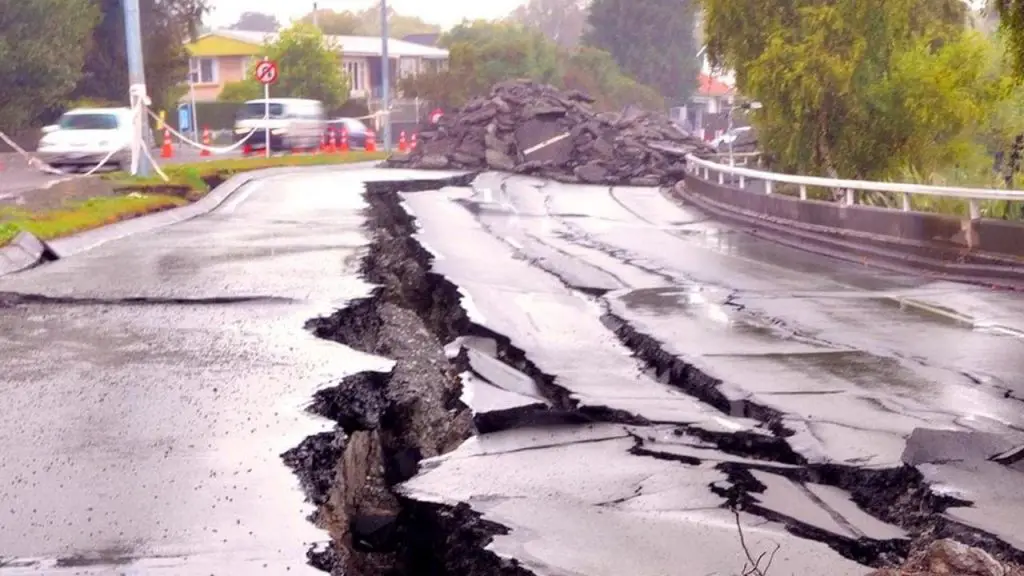Earthquakes are not just a danger to our buildings, infrastructure, and belongings. The shaking ground can be a frightening experience for anyone. As with any natural disaster, preparation is the key to keeping safe.
Knowing what to do in the event of an earthquake is invaluable when it comes to heading off potential danger and avoiding injury. While most earthquakes are low-level tremors that may go unnoticed by many people, they can also be very dangerous events depending on their strength and location.
When an earthquake strikes, you need to know what it sounds like so you can take the right precautions as quickly as possible. Read on for more information about what an earthquake sounds like so you know what action to take next time this geologic phenomenon occurs near you. Knowledge is power, so read on and keep this article bookmarked for future reference.

What Does an Earthquake Sound Like?
An earthquake has no single sound, but many. The noises depend on whether the shaking is brief or prolonged; how close it is to you; what the surface you are standing on is made of; the type and condition of any nearby buildings; the location of the earthquake within the earth; the type of earthquake itself. You may hear a rumble, roar, or crackling sound that lasts between a few seconds and several minutes.
The rolling sound of thunder may accompany a sudden jolt, while a continuous rumble may indicate a more extended shaking. Earthquakes produce vibration. The intensity of vibration can go from barely noticeable to severe shaking, depending on the magnitude of the earthquake.
If you are indoors when an earthquake occurs, the walls, floors, and furniture may vibrate. If you are outside, you will feel the ground shake beneath your feet. The intensity of the vibration depends on the strength of the earthquake.
How to Recognize an Earthquake
While advancements in technology have helped create structures that are more earthquake-resistant, it is still vital that individuals know what to do in the event of an earthquake. You may not be able to find the strength to stand and run outside if you are in a large, tall building during a powerful earthquake.
You may have to protect yourself while waiting for the earthquake to pass. If you suspect an earthquake is happening nearby, it is important to know what to look out for. Here are some signs that could indicate an earthquake is happening:
- Sudden jerking or swaying of buildings
- Buildings that are cracking or popping
- Walls that are moving in and out
- Shaking or rumbling of the ground
- Things falling off shelves
- People inside buildings are being thrown out of their chairs.
What Does An Earthquake Feel Like?
The feeling of an earthquake will experience differently depending on where you are when it happens. If you are inside, you may feel like your house is shaking or that you are being rocked from side to side. If you are outside, you may experience the ground shaking strongly. The vibrations you feel may be moderate or extremely intense.
They can last for a very short time, or for several minutes. The shaking may stop suddenly and then start again after a few seconds. If you are indoors, you may be able to avoid some of the most severe effects of an earthquake. However, you should always be prepared to get outside if the shaking becomes severe. If you are outdoors, you will be more exposed to ground shaking, but you may also have more options for escape routes.
5 Things That Happen During an Earthquake
- The ground begins to shake. The shaking of the ground can be slight or extremely intense. It can last for a few seconds or longer.
- Large cracks in the ground open up. These are called fault ruptures, and they mark the spot where the ground is breaking apart.
- The ground may rise or sink. This may happen near fault ruptures, but it can also happen far away from the earthquake’s location.
- Earthquakes change the flow of water in rivers, lakes, and oceans.
- The shaking of the ground can change the airflow. This can cause strange odors and sounds, such as the sound of an airplane that seems to be flying low in the sky.
Ways to Stay Safe When There’s an Earthquake
Stay calm and do not move. If you are indoors and the earthquake causes the building to sway, stay still. Do not try to run outside. You may get trapped in debris if the building collapses. Protect your head and neck. If you are indoors, stay away from glass and windows. Stay under a desk or table if you are near heavy furniture.
If you are outdoors, stay away from trees, power lines, and cliffs. If you are in a car or other vehicle, stop driving. Do not try to outrun the earthquake. Get out of the car. If you are in a high-rise building, stay near your desk or on the floor. Do not try to run outside. Stay where you are.
Conclusion
Earthquakes are natural disasters that can strike at any time. What does an earthquake sound like? It can range from a low rumble to the sound of thunder or cracking. Even though most earthquakes are low-level tremors, they can be very dangerous events depending on their strength and location.
If you suspect an earthquake is happening near you or if you are near a fault rupture, take action to stay safe. Stay calm, protect your head and neck, and stay where you are until the earthquake ends. You can also keep track of earthquake activity in your area to be prepared for the worst.
Additional Contents:
